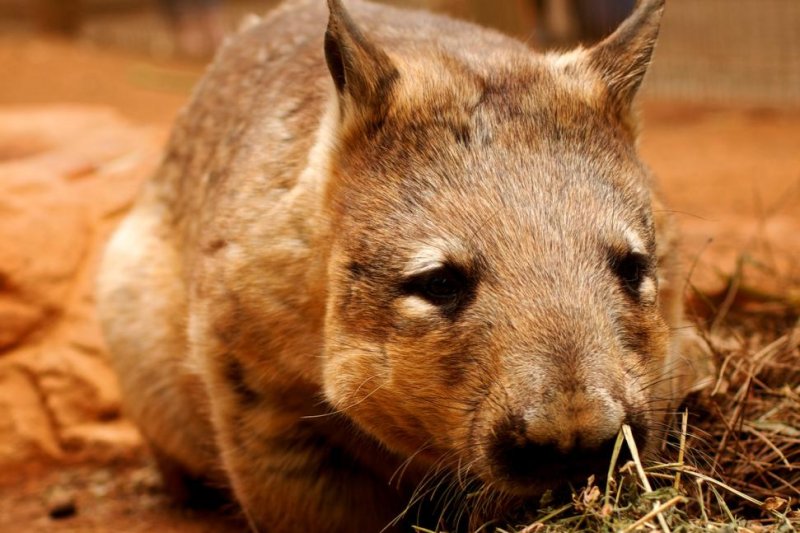May 10 (UPI) -- Female wombats bite the rumps of males to let them know they're fertile and ready to mate. The revelation could help conservationists improve the captive breeding programs.
Strong and temperamental, hairy-nosed wombats aren't easy to work with. But the future of the species' declining northern population, may depend on their ability to breed in captivity.















